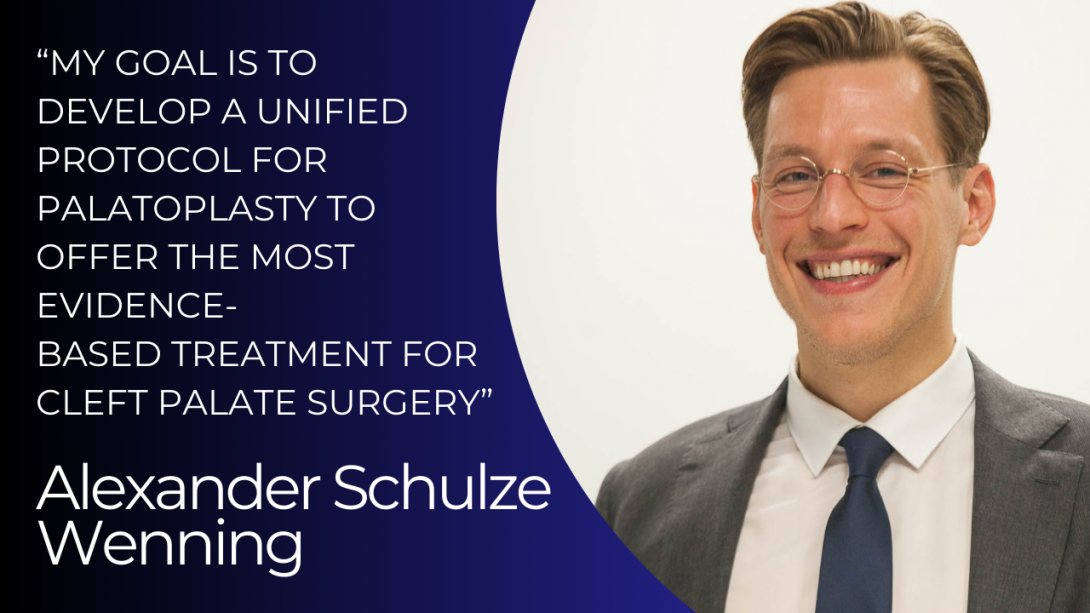
He joined the translational medicine program in September 2021, now he is coordinating second and third-year students. In his project, he aims to develop a unified, evidenced based treatment protocol for cleft lip and palate patients. In October Alexander Schulze Wenning was named Science Methodology Advisor of the Month.
Alexander Schulze Wenning graduated as a medical doctor from Semmelweis University three years ago, now he is a dentistry student and a PhD student as well. His initial involvement in translational medicine began through his mentor, Prof. Gábor Varga. “He assumed a leading role in our department established in Budapest in 2021. Before that, I was involved in basic research in his oral biology laboratory. Through Professor Varga, I was introduced to meta-analysis, and I quickly realized this approach perfectly complemented my current research interests.”
Dr. Schulze Wenning is in his final year of dentistry studies, simultaneously pursuing his third year of a PhD. program. At the Centre for Translational Medicine he transitioned from being a Scientific Methodology Supervisor (SMS) to a Scientific Methodology Advisor (SMA) this year. He also coordinates the second and third-year students. “The SMA role has been particularly rewarding, allowing me to collaborate on diverse projects and interact with exceptional individuals from various fields. As a senior SMA for the first-year dentistry group, it's exhilarating to witness the development and innovative project ideas emerging from our new students. Our group meetings provide a valuable platform for discussing these ideas with a team of knowledgeable dentists.”
His role as a coordinator offers a different perspective on the system, contributing significantly to his personal growth. It's primarily a managerial position, but it also involves actively enhancing and developing the program. “The freedom to propose new ideas, thanks to supportive leadership, is something I value greatly. This role has also been instrumental in honing my skills in managing people and teams.”
Dr. Schulze Wenning’s research, focusing on cleft lip and palate surgery, holds a special place in his heart. He is involved in three main projects: a comparison of one-stage and two-stage palatoplasty, a time regression analysis for palatoplasty to determine the optimal surgery timing, and an investigation into the best surgical techniques for palatoplasty. The diversity in surgical protocols, as highlighted by the Eurocleft team's findings, is both astounding and motivating. He aims to develop a unified protocol for palatoplasty to offer the most evidence-based treatment for cleft palate surgery.
(Emese Szabó)